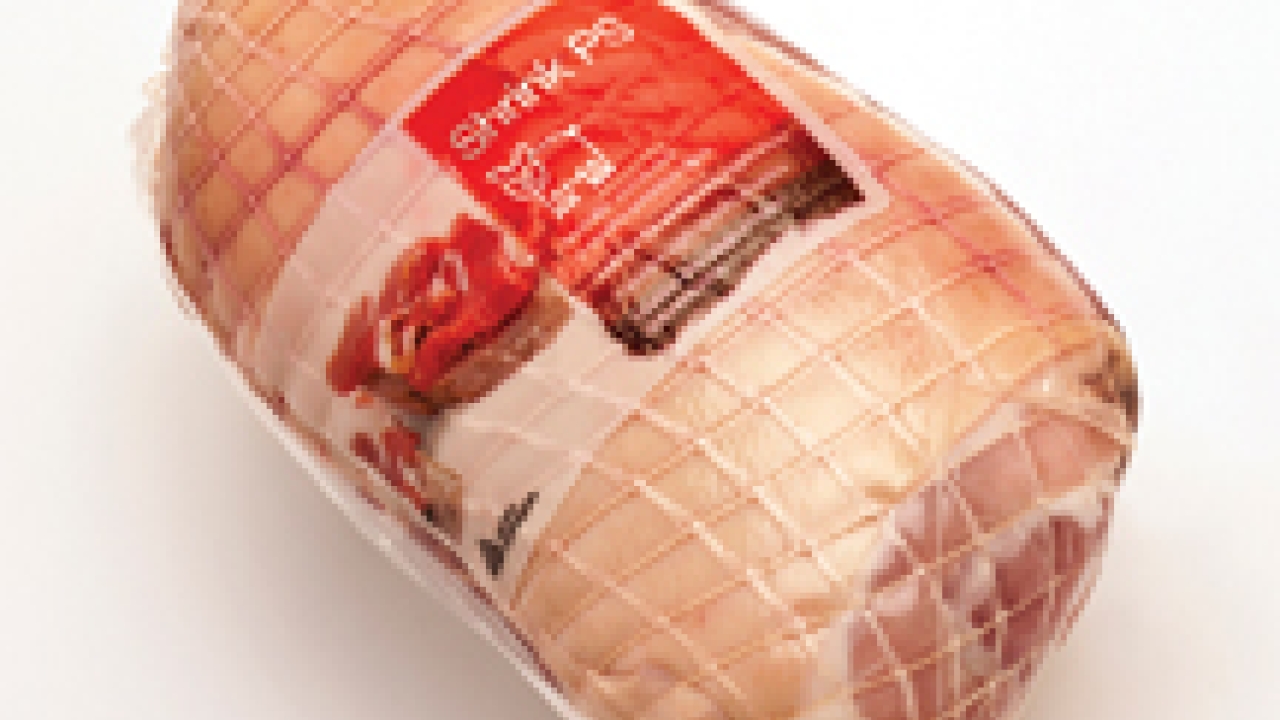New opportunities for film
Avery Dennison has been at the forefront of these developments with the commercial release of a range of new films, some of which required the co-development of new label application equipment with partner companies.

Innovative engineering of filmic products is opening up new opportunities for label converters to offer groundbreaking solutions to forward-thinking brand owners.
The company’s Curve Appeal/Fasson Curvy film system is just such a machine and label combination that creates a wraparound look on complex container shapes with the same print quality as a pressure sensitive label. Using label application equipment developed for the purpose by Harland Machine Systems, the Curve Appeal system delivers improved lay-down quality for large-format designs and enables larger back panels to carry more product or multi-language information.
Because this is such a unique application, Avery Dennison has set up a team to work with packaging designers to prototype Curvy labels for existing containers, or help them redesign packages to use the more complex curves that Curve Appeal makes possible.
Another machinery/film co-development is Avery Dennison’s Shrink PS labels, designed to be applied to shrinkable bags prior to filling and vacuum sealing using an applicator custom built by Tronics. The labels shrink with the bag without wrinkling, greatly improving the look of the pack compared to current alternatives. Potential applications include the labeling of fresh and processed meats, poultry and cheese products.
Avery has also filled a gap in its Global MDO (machine direction oriented) film range with a conformable laminate that sit between its current MDO film and PE85. Properties claimed by the company include up to 50 percent less ooze, a high level of printability and more labels per roll compared to standard PE-based products, along with the high level of clarity demanded for ‘no label’ applications in the home and personal-care (HPC) sector.
The HPC market continues to drive innovation, with Ritrama unveiling at Labelexpo Europe Soft Touch, a thin (17µ) printable laminating polypropylene film providing a velvet feel for personal care products. The company also showcased new self-adhesive materials in its wine and digital roll ranges. For the pharma sector these included AP 912, an acrylic permanent high tack adhesive suitable for small diameter substrates.
Herma, meanwhile, has announced the first film laminates to use its groundbreaking multi-layer curtain coating technology, installed at the company’s German production base last year. HERMAperfectCut is an adhesive material system claimed to significantly reduce die cutter wear and enhance general convertibility without affecting the adhesion characteristics of its 62X adhesive.
Two layers of adhesive coating are applied, one of which ‘breaks down’ faster and thus facilitates the die-cutting operation, allowing die-cutting pressure to be decreased by 15-20 percent. Cohesion – the internal force that holds together the adhesive layer – has been significantly increased, resulting in less adhesive bleeds, says Herma.
HERMAperfectCut is available initially with six PE and PP films: as a white or transparent glossy standard PE film, and as white or transparent glossy PE and PP film with surface treatment for better printability. HERMAperfectCut will eventually be rolled out to all the company’s film products.
Hanita Coatings continues to develop niche specialist products, and its latest is a water-indicative PET label face film which reveals a color change from blue to white on immersion or dampening, but without reacting to humidity. The company has also developed a 23 micron UV stabilized clear polyester overlaminate film with a proprietary anti-grafitti/scratch resistant dry-erase coating that retains gloss, clarity and dimensional stability in hostile environments.
An interesting niche application from Japan-based Lintec, meanwhile, is the Venti label, an adhesive film which allows the gas generated from the plastic molding process to be released. The company has also further developed its core tire label adhesive technology and launched a new adhesive for siliconized and other low energy surfaces.
Polyonics, another industrial films specialist, is promoting a new temperature resistant overlaminate with clear and amber options for thermal and flexo printing. The company’s latest high temperature clear label materials have a resistance to shrink up to 220 degrees celsius.
An area of filmic development attracting increasing interest from global beer brands is clear patch labeling. These are clear filmic glue-applied labels which act as a cheaper alternative to clear-on-clear pressure sensitive labeling for brands wanting to move beyond paper labels. The main challenges include providing a sufficiently clear adhesive, and avoiding unsightly wrinkling and air bubbles on the applicator. Super Film is the latest supplier to enter this market, with the launch of a BOPP film for patch labeling matched with a new water-based adhesive. A water receptive layer applied to the back of the label allows the adhesive to key.
Getting thinner
The trend towards downgauging continues. Innovia recently introduced a series of white coated and uncoated BOPP facestocks using 50 micron films instead of 60 micron. This allows costs and material useage to be lowered, while maintaining the stiffness that many applicators require. Innovia’s digital facestock, Rayoface WDI51, has also been reduced in caliper while retaining certified performance status from HP. Rayoface CPA39 and MCPA39 are clear and metalized films with reduced caliper, and optimized for use with thin filmic liners in high volume applications such as beverages.
Innovia says its squeezable BOPP films offer a significant reduction in thickness and weight compared with PE films traditionally used in the HPC sector. New here are the uncoated Rayoface CZ Plus and WZ Plus films for printers with the ability to corona treat in line.
Mactac’s U Coex55 line of thin film synthetic face materials was jointly developed with its parent Bemis group, a global specialist in flexible packaging. Other developments from the company include MP318N and MP318N UV pharma-approved adhesives, now available with a 30 micron PET liner. To serve the food industry, FA103 is a special adhesive for direct contact with fatty food, available with several paper and filmic face materials.
On the filmic release liner side, UPM Raflatac continues to promote its 30 micron Proliner, while Avery Dennison and Gallus have announced the first installations of the Cold Die system which allows liners down to 12 micron to be die cut without risk of die strikes. ETI has meanwhile sold its first MiniLiner system which also allows 12 micron liners to be die cut.
Pictured: Avery Dennison Shrink PS labels keep fresh produce labels looking good after vacuum sealing
This article was published in L&L issue 1, 2012
Stay up to date
Subscribe to the free Label News newsletter and receive the latest content every week. We'll never share your email address.

